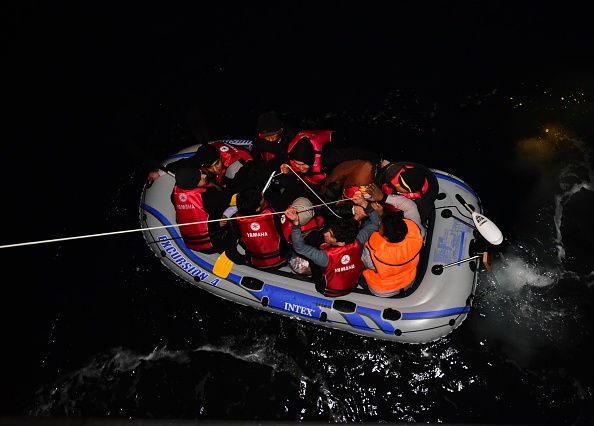There are ominous signs 2016 will be another tragic year for refugees and migrants trying to reach Europe by sea.

In the first four weeks of the new year, the International Organization for Migration (IOM) has already recorded 244 deaths in the Mediterranean and Aegean seas — a number three times higher than the 82 people who died in the same period of time one year ago.
The agency says there have been more than 55,500 refugees and migrants who have arrived in Europe by sea since Jan. 1 — nearly 2,000 daily.
The flow of refugees and migrants in 2015 was the greatest since the end of the Second World War. More than 1.1 million people from war-torn and poverty-stricken countries made their way to Europe by sea last year. But, more than 3,700 died trying.
READ MORE: 45 migrants, including 17 children, drown in migrant boat sinkings off Greece
Despite colder temperatures, Greece continues to be the busiest entry point. More than 52,055 people arrived on the shores of Greek islands, off the coast of Turkey, as of Jan 27. That’s only about 2,800 less than July, when the temperatures are higher and the seas calmer.
January’s alarming numbers come as resistance to taking in more refugees and migrants grows across Europe.
Agence France-Presse reported Friday a new poll suggests 40 per cent of Germans want Chancellor Angela Merkel to resign because of the number of asylum seekers her government has allowed into the country in the past year.
The survey, however, found 45 per cent of respondents didn’t thinks she should resign, AFP reported.
Germany took in nearly 1.1 million migrants last year, more than any other nation in Europe. The government will make it harder for migrants from some countries to seek asylum, if they come from countries which the Germany will now consider “countries of safe origin” — including Algeria, Morocco and Tunisia.
READ MORE: $2.8B needed to help kids in humanitarian emergencies in 2016: UNICEF
Meanwhile, Sweden and Finland vowed to deport tens of thousands of asylum seekers whose asylum applications are rejected.
Denmark this week passed legislation that allows authorities to seize valuables from asylum seekers in order to cover their costs.
At the same time, Canada has resettled of 15,000 of the 25,000 Syrian refugees the Trudeau government has promised to resettle by the end of February.
The former head of the United Nations High Commission for Refugees, Antonio Guterres, praised the efforts Friday at a conference in Ottawa that is focused on the Liberal government’s foreign policy.
READ MORE: How many privately sponsored Syrians will Canada accept?
But he said the number of refugees Canada plans to resettle is but a fraction of the nearly 70 million people who have been displaced by conflict over the past 10 years.
He said the world only started paying attention to the refugee crisis in earnest last fall, as Europe was deluged.
“This proves that if, indeed, everybody is equal, there are some that are more equal than others,” he said, adding that the “rich” only become aware that the “poor exists when the poor is entering their homes.”
With files from The Canadian Press



Comments